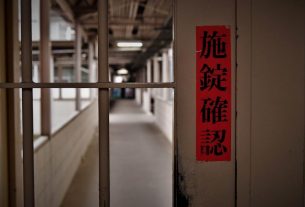|
Getting your Trinity Audio player ready...
|
The OSCE Office for Democratic Institutions and Human Rights (ODIHR) has expressed grave concern over the actions of Georgian law enforcement in dispersing peaceful protests in Tbilisi. The condemnation follows reports of police using excessive force—including water cannons, pepper spray, and batons—against demonstrators, many of whom were protesting peacefully.
In a statement released on November 30, 2024, the ODIHR described the use of force as disproportionate and indiscriminate, noting that it affected not only protestors but also journalists covering the demonstrations. The ODIHR stressed that the majority of the demonstrators were engaging in peaceful protest, a fundamental right protected under international law.
Violation of the Right to Peaceful Assembly
The ODIHR emphasized that the right to peaceful assembly is enshrined in international human rights frameworks and is crucial to the functioning of democratic societies. All OSCE participating states, including Georgia, have committed to upholding this right, and any restrictions on it must be in accordance with the law and adhere to international human rights standards.
The ODIHR’s statement underscores that the use of force by state authorities must be necessary, proportionate, and lawful. While law enforcement is permitted to take action against protestors who resort to violence, the organization stressed that police response should not escalate the situation with excessive tactics. The use of water cannons, pepper spray, and batons in this context is seen as an unjustifiable breach of the peaceful assembly rights of the protestors.
Broader Implications for Human Rights and Democracy
The ODIHR’s criticism is a reminder of the ongoing importance of protecting fundamental freedoms such as the right to assemble peacefully. These rights are not only safeguarded in legal texts but also require proper enforcement by the state in practice. The incident in Georgia highlights the need for law enforcement officials to receive adequate training on handling public protests and to respect human rights when responding to demonstrations.
The use of force by Georgian police has sparked debate on the broader issues of civil rights and government accountability in the country. In recent years, Georgia has faced increasing scrutiny from both domestic and international bodies concerning its treatment of protestors and its commitment to democratic principles.
The OSCE’s call for adherence to international human rights standards also serves as a reminder to other member states of the organization’s responsibility to protect the right to peaceful protest. By ensuring law enforcement actions are proportionate and necessary, authorities can better uphold the freedoms guaranteed to citizens under both national and international law.
International Response and Future Outlook
ODIHR urged Georgian authorities to ensure that future policing of protests aligns with international human rights norms and practices. The organization also called on all OSCE states to reaffirm their commitments to protecting the rights of individuals to express their opinions freely and assemble peacefully.
In light of the incident, the international community, including human rights advocates and diplomatic bodies, is likely to continue monitoring the situation closely. Moving forward, the emphasis will be on ensuring that state responses to peaceful assemblies do not undermine the democratic rights of citizens or jeopardize the integrity of the legal protections that underpin them.



